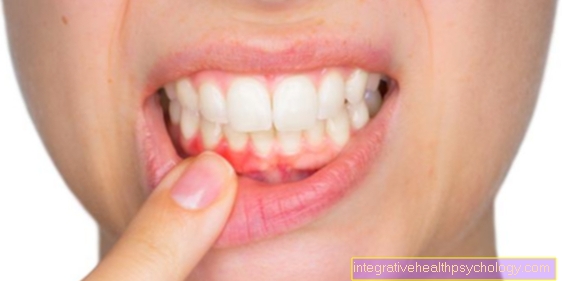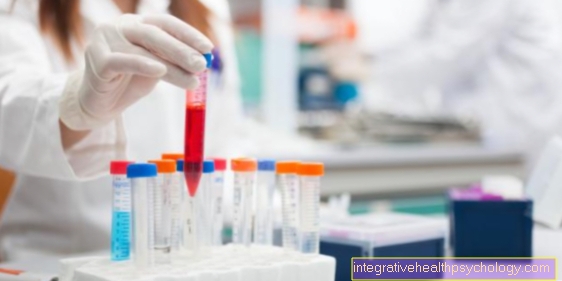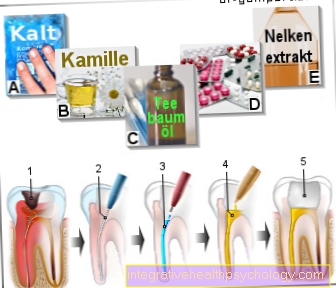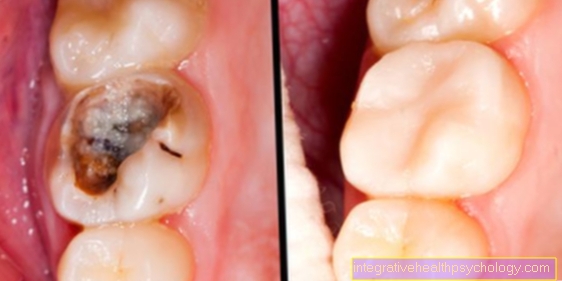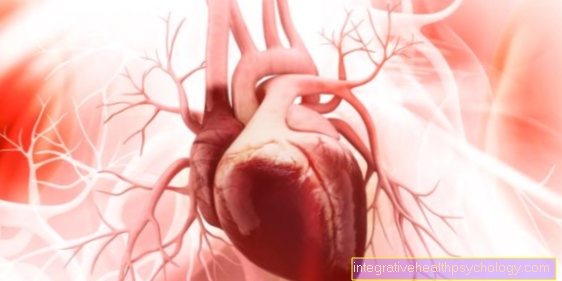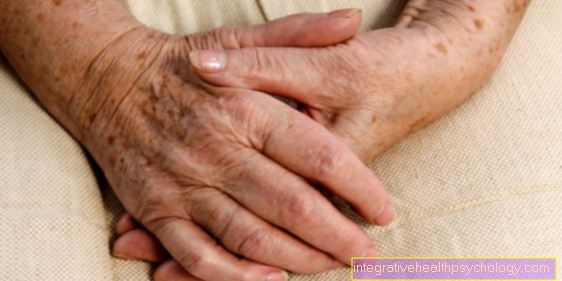Causes of Flatulence
Gas and medication

Also a few Medication (e.g. Antibiotics, Drugs in the diabetes Treatment) can cause flatulence as a side effect. If the treatment is short-term, the symptoms disappear soon after the drug is discontinued.
Even with long-term treatment, it is important not to discontinue the medication but to treat the gas that occurs as a side effect with the help of over-the-counter medication.
In patients with lactose tolerance, lactose as a carrier substance (albeit in a small proportion) in a drug can also be the cause.
Drug group: Active ingredients are, for example, agents against infections such as Penicillins, Sulfonamides, agents used to treat diabetes such as Acarbose, Remedy for Obesity like orlistat and anti-inflammatory agents and rheumatism how Diclofenac.
Flatulence from allergies
Some people tolerate certain foods such as Milk worse than others because of them Enzymes (e.g. the enzyme lactase) are missing. As a result, these foods are insufficiently broken down. About an hour after consuming it, there may be gas or gas diarrhea come. Examples of such intolerances are:
1. Milk sugar intolerancet (Lactose intolerance): Intolerance to milk; Yoghurt and cheese are usually well tolerated.
2. Fructose intolerance (Fructose intolerance): Flatulence occurs after consuming sweet fruit (e.g. pears) or fruit juices. Celiac disease / sprue (gluten intolerance):
3. Intolerance to proteins (e.g. gluten) in native cereals (e.g. wheat, barley, spelled).
Flatulence due to lactose intolerance
Flatulence through Lactose intolerance are mainly caused by the consumption of dairy products such as cheese, butter, yogurt and milk.
Patients with acquired lactose intolerance are initially unable to properly assess the situation, as the previous consumption of foods containing lactose was unproblematic. A short time after eating dairy products, these patients first begin to suffer discomfort in the stomach areafollowed by moderate to strong Flatulence and Abdominal cramps. In severe cases, nausea, vomiting or diarrhea can occur.
Please also read the article on the topic lactose.
You should definitely try 7-10 days Omit dairy products. If this leads to an improvement in the symptoms, this indicates a lactose intolerance.
Flatulence due to gluten intolerance
It is a little rarer but more difficult to diagnose Gluten intolerance. Gluten is often unknown in many foods and can be too strong Flatulence and stomach pain but also to Diarrhea to lead. Here, too, by abstaining from these foods, you can quickly find out whether there is an intolerance. However, in this case one should Gastroenterologists who can find out by means of appropriate fast-acting tests whether a gluten intolerance is present.
Flatulence from sugar substitutes
Furthermore, the body can rely on the absorption of so-called Sugar substitutes react with increased intestinal gas formation.Often there is also one here allergic reaction underlying. However, with a correspondingly high intake of sugar substitutes, the healthy intestine can also cause severe gas and flatulence laxative react. Sauerkraut, crispbread and celery can have the same flatulence as the excessive intake of fiber. Especially the excessive consumption of whole grains can lead to these complaints, although the actual consumption of fiber is considered to protect the intestine.
Other causes
In addition to the more harmless causes of flatulence, there are also a few serious illnessesthat should be excluded when searching for the cause.
To be mentioned above all malignant changes in the intestines. Any change in bowel habits (including new flatulence), the cause of which is not known, can also be caused by a Colon cancer to be triggered. It is important to carry out a Colonoscopyif no leading cause could be found.
Another cause of severe gas can also be Mushrooms which have settled in the intestine. An accompanying one is often characteristic strong offensive odor. Here in the laboratory a Pathogen identification be performed. There is a controversial debate as to whether an appropriate fungal treatment should then take place. Treatment is expensive and tedious and sometimes unsuccessful. Fungi in the intestine are often not uncommon, but they do not cause any symptoms. First of all, other causes of flatulence must also be ruled out before starting a bowel rehabilitation. Often an intestinal infestation of fungi in patients of Naturopaths in the focus of treatment moved, while conventional medicine is rather critical of this topic.
Flatulence in babies

In babies, gas is usually caused by this Ingestion of air during the Crying, Drinking or just that breathing. Often the Air in the gastrointestinal tract (Gastrointestinal tract) also cause the baby suffers from bloatingeven though he hasn't had enough milk yet.
The pain or discomfort usually manifests itself through increased crying, one Refusal to continue drinking or through facial features distorted in pain mainly after drinking.
Usually one helps Pork after drinking very good at getting rid of the swallowed air. Besides, that is Breastfeeding in contrast to the Bottle giving much more digestible, since the milk flow is slower and easier to control and thus not swallowed so much air becomes. If breastfeeding is not possible, the baby should If possible fed in an upright positionthat will remove the air trapped in the bottle, and be buried after drinking.
Should the baby with severe flatulence Sufferings that don't get better with a little pawn can also anti-gas drugs (e.g. Lefax for babies) against those then possibly following colic be taken. This is one Defoamerthat binds the many small gas bubbles into large gas bubbles that the baby burping more easily can. Also can Caraway seed-Fennel oil-Ointments or caraway suppositories help relieve the gas.
Bread can also lead to gas in the baby. Read more on the subject: When are babies allowed to eat bread / crust?
treatment
Treating a bloated stomach (Meteorism) or from many intestinal gas outlets (Flatulence) initially aims at a more balanced, healthy diet. This means that flatulent foods such as onions, cabbage, legumes or particularly fatty, sweet, hasty or lavish foods as well as carbonated drinks, coffee and alcohol should be avoided. Certain home remedies such as caraway seeds, aniseed, fennel, ginger or artichoke leaves in the form of teas or medicines, as well as a relaxing hot water bottle, can relieve the flatulence.
In addition, regular physical activity and adequate fluid intake help prevent stomach cramps or the discomfort caused by flatulence.
Often, flatulence can also be caused by food intolerances such as Lactose intolerance (intolerance to milk constituents) or an intolerance to cereal proteins (gluten), which is known as celiac disease / sprue, can be caused. If such a disease is present, the flatulent foods should be avoided.
Antispasmodic pain relievers (Antispasmodics) how to take buscopan (butylscopalamin), which relax the intestinal muscles. In addition, defoaming drugs (simeticon, diumeticon) that destroy the gas bubbles can help relieve flatulence.
If the flatulence is caused by taking medication such as Antibiotics, it is recommended that the intestinal flora be stimulated by good intestinal bacteria (Probiotics) rebuild.
nutrition
The nutrition plays one decisive role in the development and prevention of flatulence.
A healthy and balanced diet is the best measure to avoid flatulence. There should also be a lot of emphasis quiet food and thorough chewing be placed. stress, as well as the Food intake under hectic reinforce the emergence of Flatulence. It is also recommended while eating not to talk too muchotherwise a lot of air will be swallowed. Also can carbonated drinks (such as soda, cola, lemonades) and Coffee or alcoholic beverages Cause flatulence and should Enjoyed with care become. In addition, should artificial sweeteners be removed from the menu because of their flatulence.
If you are a cola fan and quite often suffer from gas and abdominal pain, read our new topic: Abdominal pain from (too much) cola.
Food
There are foods such as Cabbage vegetables (kale, Brussels sprouts, etc.), legumes (peas, beans, lentils), onions, garlic, leeks, celery, high-fat cheeses (> 45% fat), high-fat meat and fish dishes, whole grain products and muesli as well as unripe or too fresh fruit Bread, which are known to be particularly flatulent. If there is a tendency towards increased gas formation and flatulence, these foods should either be avoided entirely or consumed in smaller quantities, depending on their severity.
On the other hand, foods rich in carbohydrates such as Pasta, rice, potatoes or old bread are very easy to digest. However, the perception of what is perceived as particularly tolerable differs from person to person.


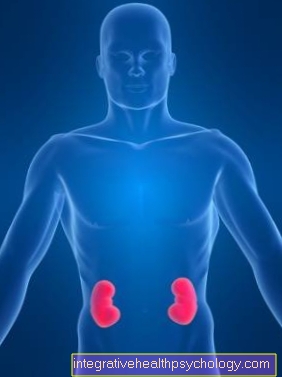






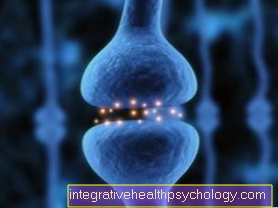
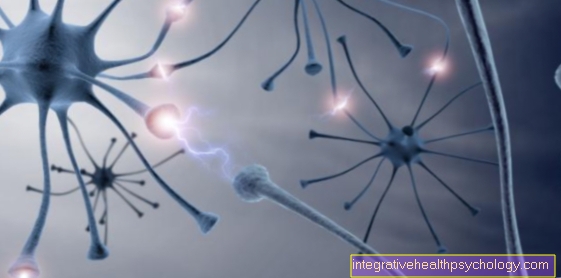
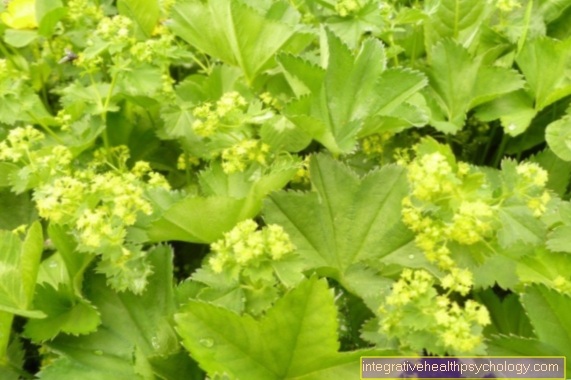


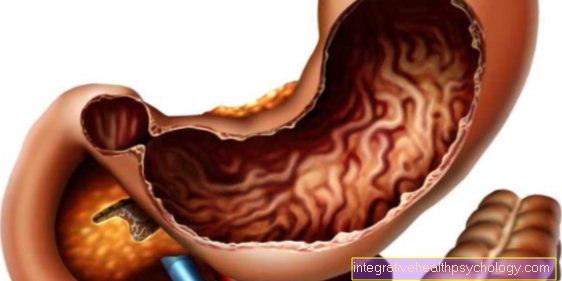

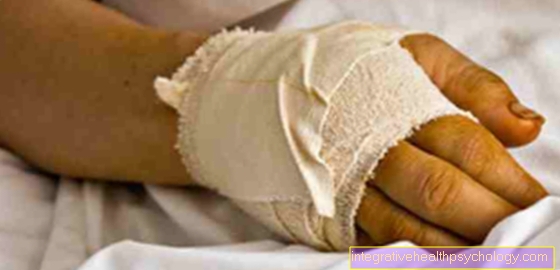
.jpg)
